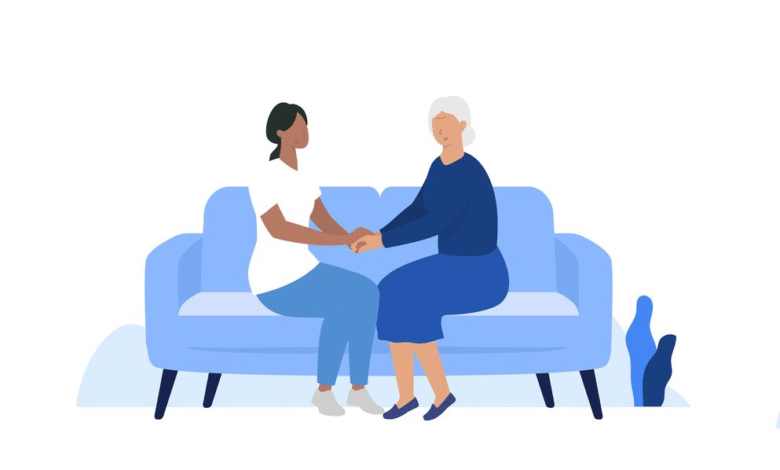Supporting Aging and Recovery Through Personalized Assistance

As individuals age or recover from illness or surgery, maintaining independence while receiving appropriate care becomes a top priority. For many, the comfort and familiarity of home provide an ideal environment for healing, emotional well-being, and day-to-day living. Rather than relocating to a facility, many people now choose care options that allow them to remain in their personal space while receiving professional or family-assisted support.
This growing preference has led to the expansion of care models that focus on comfort, dignity, and autonomy. From routine health monitoring to personal assistance and companionship, the goal is to offer support that aligns with an individual’s unique needs while preserving their lifestyle and preferences.
This article explores the philosophy, benefits, and practical considerations of maintaining quality care within the home setting. Whether for seniors, individuals with disabilities, or those recovering from medical procedures, providing support at home is emerging as one of the most compassionate and effective forms of care available.
Why Personalized Support at Home Matters
Home is more than a place—it’s a foundation for identity, routine, and comfort. For aging adults or those managing chronic conditions, staying in familiar surroundings can significantly impact emotional and psychological well-being. The consistency of the environment offers a sense of control and predictability, which is especially important when dealing with cognitive decline, anxiety, or depression.
Being surrounded by personal belongings, photographs, and a familiar neighborhood can reduce confusion, ease stress, and promote positive mental health. Unlike institutional settings, care at home allows individuals to maintain routines and relationships on their terms, reinforcing a sense of independence even when physical abilities may be declining.
This type of support is often deeply personalized, offering flexibility that facilities may not be able to match. Rather than following a one-size-fits-all schedule, caregivers and families can develop plans that cater to the individual’s specific preferences and habits.
Services and Support Offered at Home
The range of support that can be provided in a home setting is extensive and continually evolving to meet diverse needs. Depending on the individual’s condition and goals, services may range from basic assistance with daily tasks to specialized medical care administered by licensed professionals.
Common services include:
- Personal care assistance: Help with bathing, dressing, grooming, and toileting. These services are often delivered by aides or trained personal care attendants.
- Medication management: Ensuring that prescriptions are taken correctly, on time, and monitored for side effects or interactions.
- Meal preparation and nutrition: Preparing healthy meals that align with dietary restrictions, and sometimes assisting with feeding.
- Housekeeping and errands: Light cleaning, laundry, shopping, and other chores that support a safe and comfortable living environment.
- Mobility and physical support: Help with moving around the home, transferring between bed and chair, and using mobility devices like walkers or wheelchairs.
- Companionship: Emotional support, conversation, and engagement in social or recreational activities.
- Skilled nursing and therapy: Services provided by registered nurses or therapists, such as wound care, IV therapy, physical therapy, or post-surgical recovery.
As needs evolve, these services can be adjusted, expanded, or scaled back. This adaptability makes home-based support an ideal choice for those with progressive conditions or fluctuating recovery trajectories.
Benefits for Family and Primary Caregivers
Caring for a loved one can be a rewarding experience, but it can also lead to stress, exhaustion, and burnout. When care is provided exclusively by family members, the emotional and physical toll can be significant. Having professional support in place can ease the burden on families, allowing them to be more present emotionally while ensuring that the care provided is comprehensive and effective.
Some key benefits for family caregivers include:
- Relief from daily responsibilities: Outsourcing some tasks allows family members to focus on meaningful interaction rather than chores and logistics.
- Increased confidence: Knowing that trained professionals are overseeing aspects of care provides peace of mind and reduces uncertainty.
- Opportunities for self-care: Caregivers need rest, hobbies, and social interaction too. Having support at home allows them to recharge.
- Better health outcomes for the loved one: Consistent, trained care at home can lead to fewer hospital readmissions and better overall quality of life.
Caregiving is a demanding role, and no one should feel obligated to handle it alone. Professional help makes it possible to balance care responsibilities with personal health, work, and other family obligations.
Technology Enhancing the Experience
Innovations in home-based care are increasingly supported by technology. These tools are making it easier to manage care plans, monitor health, and stay connected with medical professionals and loved ones. From telehealth services to smart home devices, technology enhances both safety and efficiency.
Notable technologies include:
- Remote monitoring devices: Track vital signs, medication adherence, and movement within the home. Alerts can be sent to family or providers if something seems off.
- Telemedicine: Allows virtual doctor visits without the need to leave home, saving time and reducing exposure to illness.
- Mobile care apps: Help schedule appointments, remind users about medications, and record daily activities for reference by health professionals.
- Voice-activated assistants: Useful for setting reminders, controlling lights, or contacting help in an emergency.
The integration of these tools into daily routines helps maintain a high standard of care while empowering individuals to remain independent and engaged with their own health.
Adapting the Home Environment
For individuals receiving care at home, safety and accessibility are top priorities. Small changes to the home can make a significant difference in promoting mobility and preventing accidents. These adaptations should be tailored to the specific challenges and risks faced by the individual.
Common modifications include:
- Installing grab bars and handrails in bathrooms and hallways.
- Widening doorways to accommodate wheelchairs or walkers.
- Adding ramps at entrances and eliminating thresholds that could trip someone.
- Using non-slip flooring and securing rugs to prevent falls.
- Rearranging furniture to create open, navigable spaces.
An occupational therapist can assess a home for potential hazards and recommend solutions that improve comfort and safety. Regular assessments are helpful as needs evolve over time.
Emotional and Mental Health Considerations
Beyond physical care, emotional well-being is a core component of overall health. Individuals who receive care in their own homes often report feeling more respected, involved, and connected to their lives than those in institutional settings.
Social isolation and depression are risks, especially for older adults or individuals with limited mobility. Care at home should include strategies to keep individuals engaged and stimulated. This might involve:
- Daily conversations with caregivers.
- Encouragement to participate in hobbies or creative activities.
- Regular contact with friends and family via phone or video call.
- Visits from volunteers or pet therapy services.
Addressing mental and emotional needs is just as important as managing physical health. It contributes directly to motivation, recovery, and life satisfaction.
Planning and Cost Considerations
One of the most important aspects of choosing this care model is understanding the financial and logistical planning involved. The cost of in home care can vary widely depending on the type of services needed, the frequency of care, and whether skilled nursing or therapies are involved.
Families should consider:
- Insurance coverage: Some private insurance plans and public programs may cover portions of home-based care, particularly when medically necessary.
- Budgeting for care hours: Determine how many hours per day or week are needed, and compare providers based on credentials and pricing.
- Long-term planning: As conditions change, more intensive care may be required. It’s important to plan ahead for increasing needs.
- Care coordination: Appointing a care manager or using coordination software can help keep records, schedules, and care plans organized.
While costs can be a barrier, many families find that in home care offers better value than facility-based alternatives, especially when factoring in the enhanced quality of life and independence.
Choosing the Right Support
Selecting a care provider is a decision that should be made with careful thought and clear communication. Important factors to consider include:
- Credentials and experience: Are the caregivers trained, certified, and experienced in the necessary areas?
- References and reviews: Speaking with others who have used the service can provide helpful insights.
- Flexibility and customization: Can the service adapt to your family’s needs and schedule?
- Background checks and safety policies: Ensure that caregivers are vetted for safety and professionalism.
Open discussions with care recipients about their preferences, comfort levels, and goals will also guide the decision-making process. Choosing care that reflects the values and lifestyle of the person receiving it fosters a more positive, empowering experience.
Conclusion
Delivering personalized care in the comfort of one’s home provides a powerful alternative to traditional institutional options. It allows individuals to maintain autonomy, enjoy familiar surroundings, and receive support tailored to their needs. Whether recovering from a medical event, aging with dignity, or managing a chronic condition, the value of compassionate, competent support at home cannot be overstated.
As demand grows and technologies advance, home care agency Los Gatos is becoming more accessible, flexible, and effective. It not only offers a practical solution to modern care challenges but also restores the human connection that often gets lost in clinical settings. By investing in high-quality support at home, we ensure that care is not just about health—but also about respect, comfort, and quality of life.




